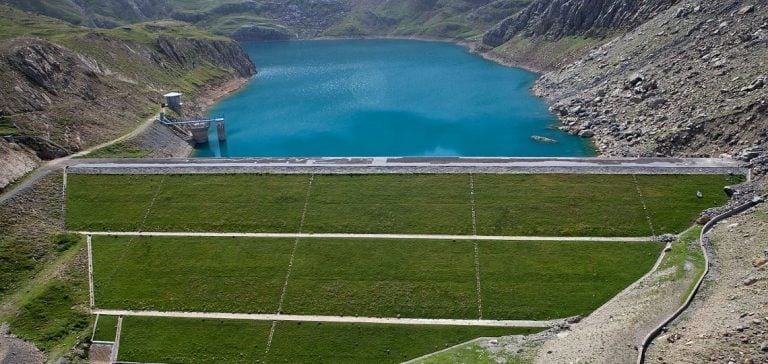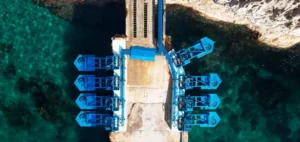Acciona Energía is considering the sale of a significant portion of its hydroelectric portfolio, estimated at $1.1 billion (1 billion euros), according to two sources familiar with the matter. This initiative is part of the company’s strategy to strengthen its financial balance sheet.
The portfolio for sale includes approximately 650 megawatts (MW) of hydroelectric capacity spread across 23 power plants located in Aragón, Cantabria, and Catalonia, in Spain. These assets generate approximately 500 gigawatt-hours (GWh) of electricity annually. The installations consist of 77% reservoir-based plants and 23% run-of-river plants. The long-term concession contracts associated with these assets have an average remaining duration of 23 years, thus providing a stable source of revenue for potential buyers.
Previous Sales and Capital Gains
Earlier this year, Acciona Energía sold 175 MW of its hydroelectric capacity to Elawan Energy, a subsidiary of ORIX Corporation, for an amount of 287 million euros. This transaction covered 23 plants located in similar regions and allowed Acciona to realize a capital gain of 170 million euros. This operation is part of the company’s asset rotation strategy, aimed at releasing value from mature hydroelectric assets to reinvest the funds in higher-growth sectors, notably wind and solar.
Strategy for Strengthening the Financial Balance Sheet
Acciona Energía has indicated that the sale of its renewable assets is part of its overall strategy to strengthen its financial balance sheet. The company has lined up banks to contact potential buyers for this hydroelectric portfolio. In July, Jose Manuel Entrecanales, chairman of Acciona Energía’s parent company, stated that the company had received formal offers for many of its assets and that it would “prioritize transactions offering the best value and strategic fit.”
Attracting Institutional Investors
The characteristics of the hydroelectric portfolio, particularly the long-term concession contracts and the stable revenue flow, make these assets particularly attractive to institutional investors. Sovereign wealth funds, pension funds, and large energy companies are among the potential buyers likely to be interested in these assets due to their stability and financial predictability. Acciona Energía expects to receive non-binding offers for its hydroelectric business in early November 2024, according to the sources. This anticipation is supported by the nature of the assets, which offer predictable cash flows and regulatory stability, thus meeting the criteria of institutional investors seeking safe and long-term returns.
Trends in the Energy Sector
Acciona Energía’s decision to sell a portion of its hydroelectric portfolio aligns with current trends in the global energy sector. Many companies in the sector are now prioritizing wind and solar projects due to their potential for rapid growth and the continued reduction in associated costs. Unlike hydroelectric power, which requires significant capital investments and prolonged concession periods, solar and wind technologies offer greater flexibility and faster implementation.
Future Prospects for Acciona Energía
The sale of this hydroelectric portfolio allows Acciona Energía to realign its investments towards rapidly expanding renewable segments. By freeing up funds from the sale of its hydroelectric assets, the company plans to strengthen its investments in wind and solar energy, sectors presenting significant growth opportunities. This strategy aims to optimize the company’s asset management while ensuring long-term financial stability. Acciona Energía stated that it would decline to comment on this sale. However, the company’s overall strategy shows a clear orientation towards investments in high-growth renewable sectors, thus meeting the market’s demands and the company’s financial objectives.






















